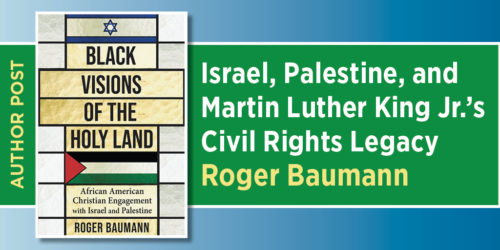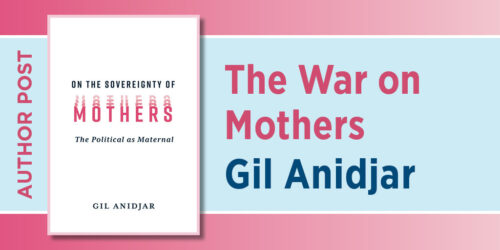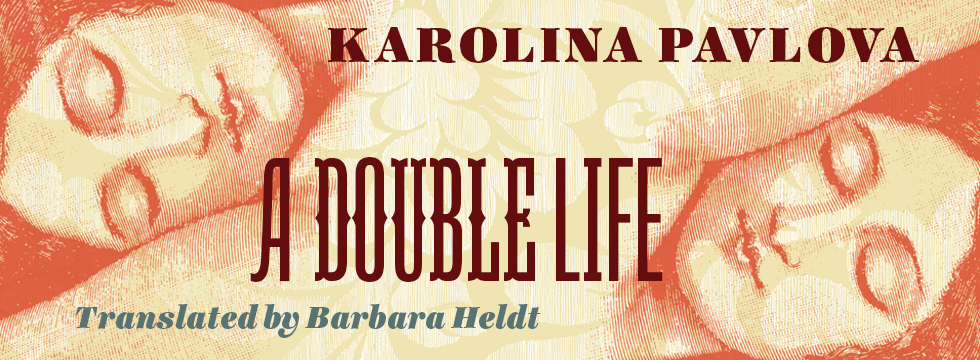Judith Butler in conversation with Udi Aloni
You’d bring someone home, and the first question was “Are they Jewish, are they not Jewish?” Then I entered into a lesbian community in college—late college, graduate school—and the first thing they asked was, “Are you a feminist, are you not a feminist?” “Are you a lesbian, are you not a lesbian?” and I thought, “Enough with the separatism!” — Judith Butler
Our highlighted book this week is Judith Butler’s Parting Ways: Jewishness and the Critique of Zionism. You can enter our giveaway for a chance to win a FREE copy!
Today we have part of a conversation between Israeli filmmaker Udi Aloni and Judith Butler excerpted from Aloni’s book What Does a Jew Want?: On Binationalism and other Specters. In this excerpt, Butler explains how her Jewish background led her to the study of philosophy and critical theory, which in turn led her back to a study of the Israeli-Palestinian conflict. You can read the conversation in it’s entirety on Scribd.
Udi Aloni: Now I must be Jewish: what was your parents’ relation to Judaism?
Judith Butler: My parents were practicing Jews. My mother grew up in an Orthodox synagogue and after my grandfather died, she went to a Conservative synagogue and a little later ended up in a Reform synagogue. My father was in reform synagogues from the beginning.
My mother’s uncles and aunts were all killed in Hungary. My grand¬mother lost all of her relatives, except for the two nephews who came with them in the car when my grandmother went back in 1938 to see who she could rescue. It was important for me. I went to Hebrew school. But I also went after school to special classes on Jewish ethics because I was interested in the debates. So I didn’t do just the minimum. Through high school, I suppose, I continued Jewish studies alongside my public school education.
Udi Aloni: And you showed me the photos of the bar mitzvah of your son as a good, proud Jewish mother. (Laughs.)
Judith Butler: (Laughs.) Yes, but he had leeway to come up with any interpretation he wanted of the story of Noah. He started his speech, his parashah, by saying that he didn’t really believe in god, and there was a problem because he had to refer to god with a gendered pronoun. And he said that, if there were a god, he was quite sure that god didn’t really have a gender, but he was going to use “he” just because it was easier.
So it’s been there from the start, it’s not as if I arrived at some place that I haven’t always been in. I grew very skeptical of a certain kind of Jewish separatism in my youth. I mean, I saw the Jewish community was always with each other; they didn’t trust anybody outside. You’d bring someone home, and the first question was “Are they Jewish, are they not Jewish?” Then I entered into a lesbian community in college—late college, graduate school—and the first thing they asked was, “Are you a feminist, are you not a feminist?” “Are you a lesbian, are you not a lesbian?” and I thought, “Enough with the separatism!”
It felt like the same kind of policing of the community. You only trust those who are absolutely like yourself, those who have signed a pledge of allegiance to this particular identity. Is that person really Jewish, maybe they’re not so Jewish. I don’t know if they’re really Jewish. Maybe they’re self-hating. Is that person lesbian? I think maybe they had a relationship with a man. What does that say about how true their identity was? I thought, I can’t live in a world in which identity is being policed in this way.
But if I go back to your other question . . . In Gender Trouble there is a whole discussion of melancholy. What is the condition under which we fail to grieve for others? Or the condition under which we fail to be able to acknowledge a loss and to grieve a loss? I presumed, throughout my childhood, that this was a question the Jewish community was asking itself. It was also a question that I was interested in when I went to study in Germany. The famous Mitscherlich book on the incapacity to mourn, which was a criticism of German postwar culture, was very very interesting to me.
In the seventies and eighties, in the gay and lesbian community, it became clear to me that very often, when a relationship would break up, a gay person wouldn’t be able to tell parents, his or her parents. There would be no public acknowledgment of the loss. It was as if there had never been a relationship and there had never been a loss. So here people were going through all kinds of emotional losses that were unacknowledged, and that became very acute during the AIDS crisis. I was most familiar with this in the U.S., where people were dying and there was no public acknowledgment of the death, and there was no public acknowledgment of what the relationships were that had been lost. In the earliest years of the AIDS crisis, there were many gay men who were unable to come out about the fact that their lovers were ill, A, and then dead, B.
They were unable to get access to the hospital to see their lovers, unable to call their parents and say, “I have just lost the love of my life” or “my lover has gone through a monstrous death and was denied medical support at the end, and now there is no public acknowledgment of this loss.”
This was extremely important to my thinking throughout the eighties and nineties. But it also became important to me as I started to think about war. After 9/11 I was shocked by the fact that there was public mourning for many of the people who died in the attacks on the World Trade Center, less public mourning for those who died in the attack on the Pentagon, no public mourning for the illegal workers of the WTC, and, for a very long time, no public acknowledgment of the gay and lesbian families and relationships that had been destroyed by the loss of one of the partners in the bombings. Then we went to war very quickly, Bush having decided that the time for grieving was over. I think he said that, after ten days, the time for grieving was over and now was the time for action. At which point we started killing populations abroad with no clear rationale. And the populations we targeted for violence were ones that never appeared to us in pictures. We never got little obituaries for them. We never heard anything about what lives had been destroyed. And we still don’t.
I then moved toward a different kind of theory, asking under what conditions certain lives are grievable and certain lives not grievable or ungrievable. It’s clear to me that in Israel-Palestine, and in the violent conflicts that have taken place over the years, there is differential grieving. Certain lives become grievable within the Israeli press, for instance—highly grievable and highly valuable—and others are under¬stood as ungrievable because they are understood as instruments of war or they are understood as outside the nation, outside religion, or outside that sense of belonging which makes for a grievable life. The question of grievability has linked my work on queer politics—especially the AIDS crisis—with my more contemporary work on war and violence, including the work on Israel-Palestine.
2 Responses
-
Pingback: Grand conversation | Bestofcorpusch
Leave a Reply
You must be logged in to post a comment.






Thank you for such an enlightening discussion. As a journalist in Pakistan I have long felt that we are not tackling our loss at all. But Ms. Butler’s words and terms have opened up ideas for me to explore.